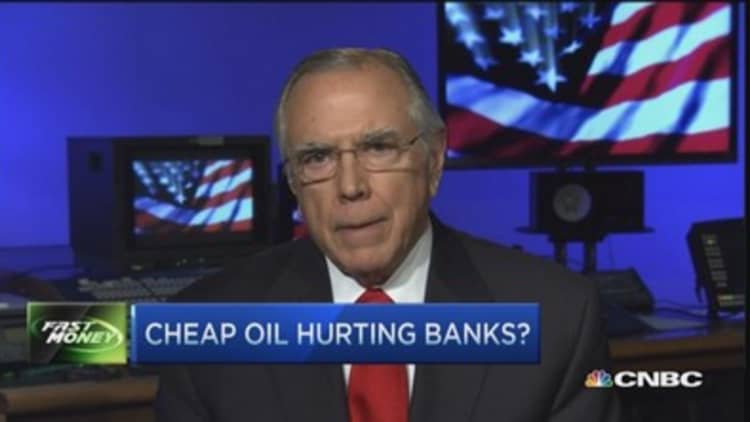As oil prices round out a month of trading in the $40 range, hedge funds in both the U.S. and abroad are grabbing at investment opportunities in a distressed energy sector.
In recent months, a spate of money managers, including Lansdowne Partners, Avenue Capital, Carlson Capital and Blackstone's GSO Capital unit, have been raising fresh capital to deploy in either long-short energy stock picking, credit investing, or both. At the same time, hedge-fund investors say that finding ways to home in on the distressed oil industry has been a top priority of late.
Energy "is one of our top themes," said Charlie Krusen, whose $200 million fund of funds company, Krusen Capital Management, has fielded dozens of pitches from hedge funds and private equity shops focusing on the troubled sector in recent months.

It's all part of a stampede for returns at a time when energy companies' cash-intensive drilling and servicing operations have been strained in the current, cheap-crude environment.
Read MoreNext for oil: Mergers, layoffs and 'death spirals'
By snapping up shares of those companies in the stock market or their debt in the bond market, investors generally are making two types of bets: that the companies will recover ground when crude rises again, generating attractive returns for those who bought shares during the downturn, or, alternately, that the companies will go bankrupt if oil remains cheap—giving their bondholders a chance to swap existing bonds for equity and, effectively, take over troubled companies with compelling assets at fire-sale valuations.
"You haven't had an industry this large become this distressed since the banking crisis," said Jason Mudrick, manager of the $1.2 billion fund company Mudrick Capital, which is expanding its investing in energy at the moment. (Krusen's company, for instance, plans to become an investor.)
The trick for investors is doing enough due diligence on corporate balance sheets and credit structures to know what they're in for, while simultaneously finding the shale plays in the U.S. and beyond that are worth owning in the longer run.
Clint Carlson, whose $9 billion Carlson Capital in December announced the opening of three separate funds for trading energy stocks and bonds, believes that moving quickly will be critical.
Read More
"What we've seen and we continue to see in the equity market is a lot of volatility in equity pricing, a lot of mispricing between companies that are doing the same things, [and] people not really understanding the impact of these capex cuts that are happening now," Carlson said. Such tumult creates the opportunity for savvy stock pickers to generate returns, he added.
By contrast, Carlson said, the time to strike in the bond market is likely still two or three quarters away, at which point companies grappling with continued cheap crude prices would be in more severe distress.
The new energy investments are being funded by a mix of players. Some are traditional investors, like the fund of funds Krusen Capital or the Pennsylvania Public School Employees' Retirement System, the pension fund that recently invested $200 million in Avenue's Energy Opportunities Fund, according to public filings.
Read MoreEight world-changing energy innovations
But wealthy individuals and corporations are also involved, the hedge fund managers said.
And distressed investing, whether in energy or another sector, is not without risk.
"It's going to be very volatile," said Marc Lasry, Avenue's CEO, in a recent CNBC interview.






